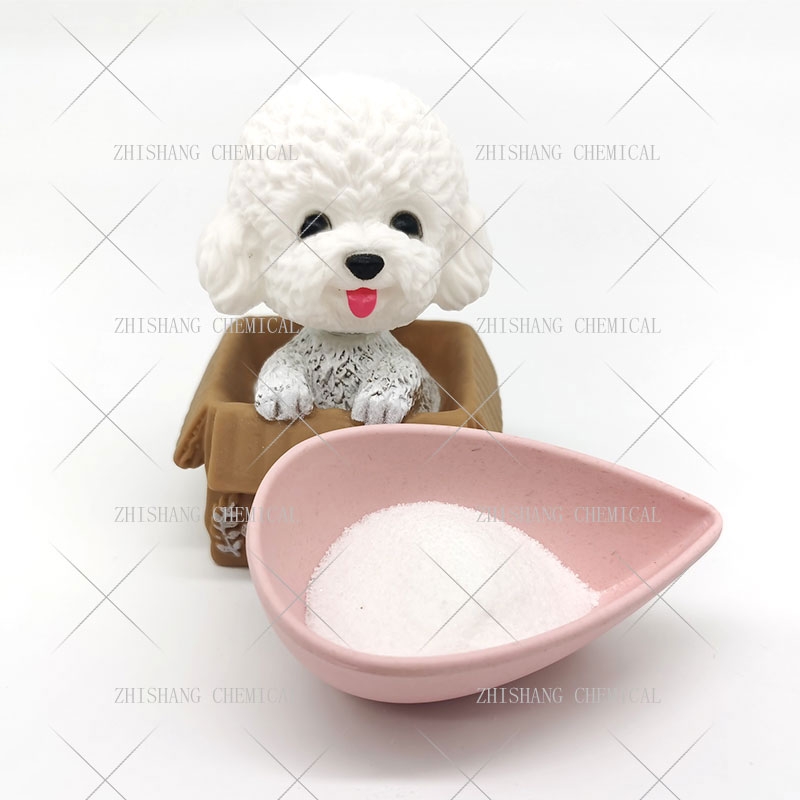-
Categories
-
Pharmaceutical Intermediates
-
Active Pharmaceutical Ingredients
-
Food Additives
- Industrial Coatings
- Agrochemicals
- Dyes and Pigments
- Surfactant
- Flavors and Fragrances
- Chemical Reagents
- Catalyst and Auxiliary
- Natural Products
- Inorganic Chemistry
-
Organic Chemistry
-
Biochemical Engineering
- Analytical Chemistry
-
Cosmetic Ingredient
- Water Treatment Chemical
-
Pharmaceutical Intermediates
Promotion
ECHEMI Mall
Wholesale
Weekly Price
Exhibition
News
-
Trade Service
[ Focus on Chemical Machinery Equipment Network ] On January 1, 2022, the news that RCEP will take effect has been swiped
.
RCEP, the regional comprehensive economic partnership agreement came into effect and implemented, which means that the world's largest free trade zone has officially set sail
.
Chemical machinery and equipment network hotspots pay attention to chemical machinery and equipment.
RCEP, the regional comprehensive economic partnership agreement came into effect and implemented, which means that the world's largest free trade zone has officially set sail
.
After 8 years of negotiation, RCEP was signed on November 15, 2020
.
On New Year's Day in 2022, RCEP officially entered into force for 10 countries including Brunei, Cambodia, China, Japan, and New Zealand
.
The remaining member states will also take effect one after another after completing the domestic approval procedures
.
.
On New Year's Day in 2022, RCEP officially entered into force for 10 countries including Brunei, Cambodia, China, Japan, and New Zealand
.
The remaining member states will also take effect one after another after completing the domestic approval procedures
.
RCEP currently has 15 member states, including China, Japan, South Korea, Australia, New Zealand, and 10 ASEAN countries.
In terms of population, economic size, and total trade, they all account for about 30% of the global total
.
In terms of population, economic size, and total trade, they all account for about 30% of the global total
.
Vice Minister of Commerce Ren Hongbin said that the effective implementation of the RCEP agreement is a new milestone in China's opening up to the outside world, providing strong support for the construction of a new development pattern, and will also inject new impetus into China and the world's economic growth
.
.
What kind of opportunities does it bring to the enterprise?
For enterprises, the biggest benefit after RCEP takes effect is the reduction in import costs and the increase in export opportunities brought about by the reduction of tariffs
.
According to the RCEP agreement, in the end, 86% of Japanese exports to China will achieve zero tariffs, while 88% of Chinese exports to Japan will enjoy zero tariffs
.
.
According to the RCEP agreement, in the end, 86% of Japanese exports to China will achieve zero tariffs, while 88% of Chinese exports to Japan will enjoy zero tariffs
.
On the day RCEP took effect, tariffs on a large number of products were immediately reduced to zero
.
The ratio of immediate zero tariffs between China and ASEAN, Australia, and New Zealand exceeds 65%, the ratio of immediate zero tariffs with South Korea reaches 39% and 50%, and the ratio of immediate zero tariffs with Japan reaches 25% and 57%, respectively
.
.
The ratio of immediate zero tariffs between China and ASEAN, Australia, and New Zealand exceeds 65%, the ratio of immediate zero tariffs with South Korea reaches 39% and 50%, and the ratio of immediate zero tariffs with Japan reaches 25% and 57%, respectively
.
Gao Feng, a spokesperson for the Ministry of Commerce, said that after the tax cuts are completed, China’s imports of coconut juice, pineapple products, and paper products from ASEAN, induction cookers, electric ovens, and most mechanical equipment, instruments , and auto parts imported from Japan will all be changed.
Gradually exempt tariffs
.
At the same time, China's exports of mechanical and electrical products, instruments, textiles and clothing, some aquatic products and vegetables to Japan will also gradually enjoy zero tariff treatment
.
Through the RCEP tariff preferential arrangement, enterprises in the region can significantly reduce production costs, and consumers can enjoy more high-quality products at a lower price
.
Instrumentation Gradually exempt tariffs
.
At the same time, China's exports of mechanical and electrical products, instruments, textiles and clothing, some aquatic products and vegetables to Japan will also gradually enjoy zero tariff treatment
.
Through the RCEP tariff preferential arrangement, enterprises in the region can significantly reduce production costs, and consumers can enjoy more high-quality products at a lower price
.
This time, the direct benefit of the signing of RCEP is the reduction of trade tariffs among the member states of the agreement, making it easier for companies to invest abroad and export goods and services
.
For enterprises engaged in the export trade of instruments and meters, it is conducive to increasing product exports, increasing corporate income, improving product competitiveness, and expanding overseas markets
.
In addition, due to tariff reduction and exemption, the cooperation and collaboration of instrumentation products in the overall industry chain makes them more attractive and cheaper.
At the same time, the two domestic markets can communicate with each other more conveniently, which is conducive to domestic enterprises importing instrumentation products to meet demand.
.
.
For enterprises engaged in the export trade of instruments and meters, it is conducive to increasing product exports, increasing corporate income, improving product competitiveness, and expanding overseas markets
.
In addition, due to tariff reduction and exemption, the cooperation and collaboration of instrumentation products in the overall industry chain makes them more attractive and cheaper.
At the same time, the two domestic markets can communicate with each other more conveniently, which is conducive to domestic enterprises importing instrumentation products to meet demand.
.
What challenges does it bring to the enterprise?
Reducing import tariffs will promote the growth of trade and investment, and will also intensify industry and enterprise competition
.
The rules of accumulation of origin will deepen the in-depth integration of the regional industrial chain, and may also speed up the transfer of labor-intensive industries to ASEAN countries with lower land and labor costs
.
.
The rules of accumulation of origin will deepen the in-depth integration of the regional industrial chain, and may also speed up the transfer of labor-intensive industries to ASEAN countries with lower land and labor costs
.
According to the relevant regulations of RCEP, the tariff rate of some countries will be gradually reduced, and the tax rate of commodities in many fields will be zero
.
Second, according to the RCEP rules of origin, the cumulative principle of origin can be implemented.
In 15 countries, raw materials and parts can be used in common use.
Enterprises can choose products and industrial supporting facilities in 15 countries.
Which place has low cost and product If the quality is good and competitive, choose which place to support
.
.
Second, according to the RCEP rules of origin, the cumulative principle of origin can be implemented.
In 15 countries, raw materials and parts can be used in common use.
Enterprises can choose products and industrial supporting facilities in 15 countries.
Which place has low cost and product If the quality is good and competitive, choose which place to support
.
This means that within 15 countries, the production link of the product can be flexibly selected between upstream and downstream.
This is conducive to promoting the optimization of industrial allocation, reducing costs, and improving product competitiveness, but it also means the flow of industries and foreign investment.
Will accelerate, and competition among enterprises will also intensify
.
In this process, overseas instrument and meter manufacturers will greatly reduce the import resistance, and at the same time, they will be able to make better use of the resources of domestic component suppliers and effectively reduce costs.
Domestic instrument companies will face all aspects of competitive pressure, especially the cost advantage will be greater.
Minus
.
This is conducive to promoting the optimization of industrial allocation, reducing costs, and improving product competitiveness, but it also means the flow of industries and foreign investment.
Will accelerate, and competition among enterprises will also intensify
.
In this process, overseas instrument and meter manufacturers will greatly reduce the import resistance, and at the same time, they will be able to make better use of the resources of domestic component suppliers and effectively reduce costs.
Domestic instrument companies will face all aspects of competitive pressure, especially the cost advantage will be greater.
Minus
.
Ironing must be hard on its own.
Only the company’s own technology is strong enough to achieve the upgrade of the instrumentation industry in order to achieve a place in the future market competition
.
Only the company’s own technology is strong enough to achieve the upgrade of the instrumentation industry in order to achieve a place in the future market competition
.
The entry into force of RCEP presents both opportunities and challenges
.
.
To help companies seize the opportunities brought by RCEP, commerce, customs and other departments have organized more than 1,000 trainings across the country
.
Many places have issued special policies to make all-round deployments in terms of expanding the space for trade in goods and deepening two-way investment
.
In the near future, the Ministry of Commerce and relevant departments will issue the "Guiding Opinions on High-Quality Implementation of RCEP" to guide and help localities and enterprises to better use RCEP rules
.
.
Many places have issued special policies to make all-round deployments in terms of expanding the space for trade in goods and deepening two-way investment
.
In the near future, the Ministry of Commerce and relevant departments will issue the "Guiding Opinions on High-Quality Implementation of RCEP" to guide and help localities and enterprises to better use RCEP rules
.
Instrumentation companies should actively seize the opportunity of RCEP’s entry into force, take advantage of the policy advantages of agreement members’ low tariffs and the principle of accumulation of origin in the region, take precautions, overcome difficulties, carry out a new round of industrial layout, transform challenges into motivation, and transform competitive disadvantages.
For the advantage, we will write a new chapter for Chinese instruments and meters to "go to sea"
.
For the advantage, we will write a new chapter for Chinese instruments and meters to "go to sea"
.
Original title: RCEP officially takes effect, opening up a new situation for Chinese instrumentation to "go to sea"







